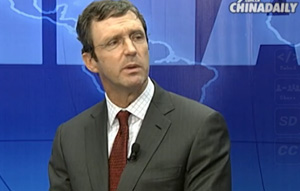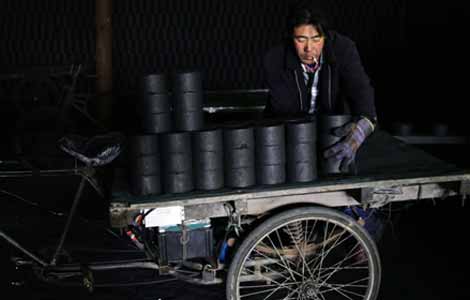Li's Euro-Asia trip to boost co-op
Updated: 2013-11-19 09:40
(Xinhua)
|
|||||||||||
BEIJING -- Chinese Premier Li Keqiang's upcoming trip to Romania and Uzbekistan is expected to explore new areas of practical cooperation with relevant countries and promote common development.
During his November 25-29 trip, Li will pay an official visit to Romania and attend a China-Central and Eastern Europe (CEE) leaders' meeting in the capital city of Bucharest. He will also be present at the Shanghai Cooperation Organization (SCO) prime ministers' meeting in the Uzbek capital of Tashkent.
BUILDING WIN-WIN CHINA-CEE RELATIONS
At the summit with leaders of 16 CEE countries, Li will elaborate on China's position on relations with these nations and announce important cooperation measures. He will also hold separate meetings with them.
The 16 countries are Albania, Bosnia and Herzegovina, Bulgaria, Croatia, the Czech Republic, Estonia, Hungary, Latvia, Lithuania, Macedonia, Montenegro, Poland, Romania, Serbia, Slovakia and Slovenia. Eleven of them are members of the European Union (EU).
The similarity and complementarity between the economies of China and CEE countries have created favorable conditions for mutually beneficial cooperation.
Like China, most CEE countries are at a phase of transformation to the market economy.
Besides, these countries have strong demands for economic restructuring and infrastructure upgrading, while China has advantages in equipment manufacturing and infrastructure construction.
"Currently, Central and Eastern European countries urgently need expanding investment to promote economic growth, and China has advantages in capital and technology. This has become a rallying point for bilateral cooperation," said Ruan Zongze, vice president of the China Institute of International Studies.
China-CEE cooperation also can create investment and trade opportunities for Chinese companies, Ruan said.
In recent years, the two sides have formed a mechanism for cooperation. China has set up a secretariat for bilateral cooperation while CEE countries each has designated a counterpart department or a national coordinator to work with the secretariat.
China is implementing its plan to set up a special credit line of $10 billion dollars with a certain proportion of concessional loans that will be used in bilateral cooperation projects mainly in infrastructure, high technology and green economy.
The two sides have made progress in trade and investment since the first China-CEE business forum was held in Budapest, Hungary, in June 2011.
Ruan said expanding China-CEE cooperation will also help improve China-Europe cooperation and foster a more comprehensive and balanced development of China-Europe relations.
Related Stories
Chinese FM expresses great expectation of Asia-Europe ties 2013-11-11 22:03
China Construction Bank looks to Europe for deals 2013-11-04 10:13
Trade with Europe on fast track 2013-10-30 09:58
Today's Top News
Xi urges work safety check after fatal blasts
Qingdao continues recovery
1.12m seek government jobs
Premier Li heads west on opening-up tour
Deal reached in Iranian nuke talks
Roar of the East being heard
New air zone in line with practice
UN talks agree on major principles for climate pact
Hot Topics
Lunar probe , China growth forecasts, Emission rules get tougher, China seen through 'colored lens', International board,
Editor's Picks

|

|

|

|

|

|





